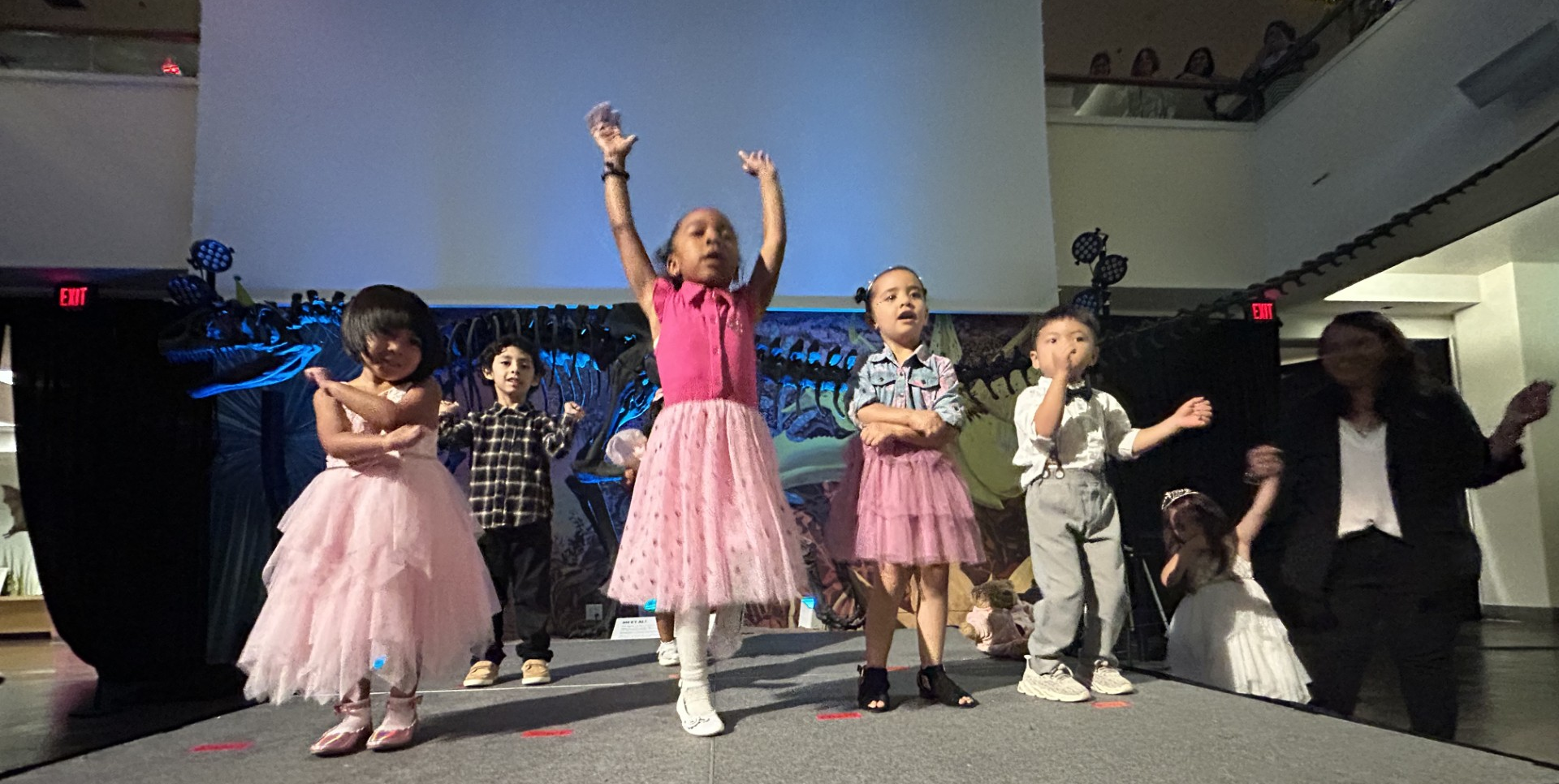Addressing Family Violence Takes Time, Innovation and a Movement
By Tamar Abrams
October 17, 2025
What if…children everywhere had the freedom to be kids, to laugh and feel safe?
What if…survivors of family violence were heard and seen and their experiences valued?
What if…healing from family violence was not only possible but prioritized?
Promising Futures and our 55 new grantees have started a movement built around the concept of “what if.” That’s because the data tells us the status quo is not working:
- More than 15 million children are exposed to domestic violence every year, and
- Children who experience family violence are at risk of long-term psychological and health consequences.
15 million children each year is simply untenable. So what if programs working with families had the resources to innovate, assess, recalibrate and innovate again?
To find the answers to this question and to advance the burgeoning movement, Promising Futures convened a meeting in August of its 55 new grantees alongside staff and technical advisors to talk peer-to-peer.
Promising Futures, an initiative of Futures Without Violence, partners with communities to innovate and mobilize survivors of family violence and their communities to strengthen child and family practices and organizations. The goal is to create conditions and experiences that prevent violence and promote healing for children and their families. What does that look like and how does that advance a burgeoning movement? And when innovation is actively encouraged, what possibilities are guided to reality?
Every Voice Counts
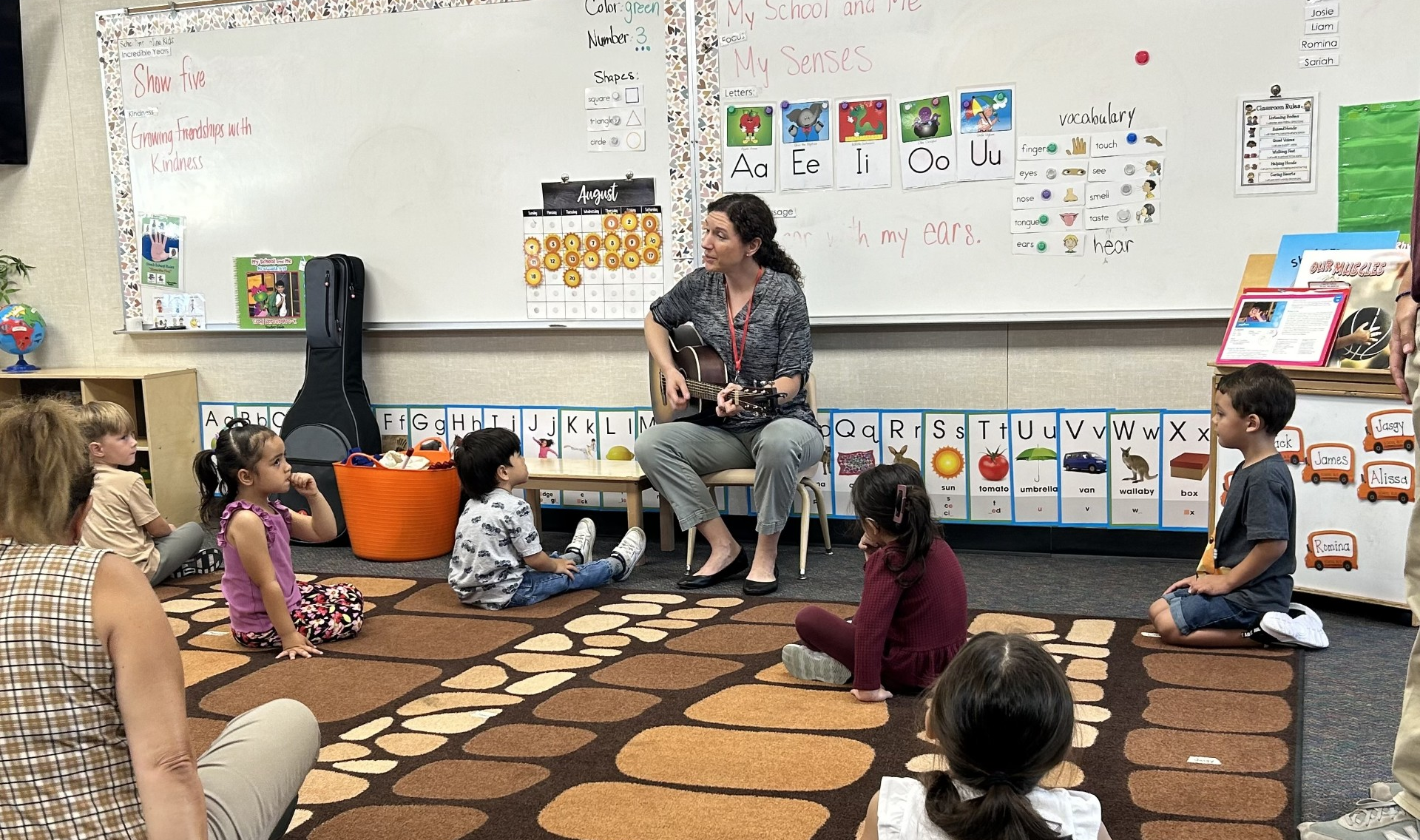 Preschool students at Mi Escuelita Therapeutic Preschool who were previously behind academically, perform as well as their peers at the elementary school level.
Preschool students at Mi Escuelita Therapeutic Preschool who were previously behind academically, perform as well as their peers at the elementary school level.
Promising Futures grantees are reaching deep into their communities to hear the voices of all those affected by family violence, and are putting survivor-led expertise at the center of their planning. That is why programs are changing the hours of preschool to fit the needs of single parents or adding a car repair class among other offerings at transitional living or offering summer camps for parent and child survivors. It is also why, surprisingly, the abusive partners are sometimes included in programs, at the request of families.
Mi Escuelita Therapeutic Preschool, based in Chula Vista, CA, recognizes that children who live in homes where violence occurs often suffer emotional and psychological trauma. Mi Escuelita prepares approximately 80 children every year for kindergarten and seamless integration into elementary school.
Graduates, who were previously behind academically, have proven to perform as well as their peers at the elementary school level. Unlike most other preschools, it involves the entire family through therapy, holiday celebrations, and onsite food distributions.
“We are incredibly responsive to survivors and their community. We look at what parent and child survivors need,” explains Danielle Fettes, with the Regents of the University of California, San Diego, who works with Mi Escuelita.
Because most of the parents work while their children are attending preschool, the hours were changed from 8:30 – 4:30 to 8:00 – 5:30 year-round to accommodate those schedules. Legal aid referrals and behavioral therapy are also available.
One parent whose son, Joshua, attended Mi Escuelita says, “Asking for help is something I have never been good at, but we did NOT encounter shame here. [Mi Escuelita] has also helped me take responsibility for my own actions and learn to be a better parent without the added guilt or shame about whatever I didn’t know or get right as a mom.”
Embracing the voices of those who survived abuse – and even those who committed it – is clearly being written into strategies by some of the grantees. Listening to children, both what is said and left unsaid, is also guiding many of the programs.
“One of the things the movement hasn’t yet done in the family court system is promote separate programming for both survivor parents and perpetrating parents in order to support post-separation co-parenting,” says Erika Simonson, Family Services Director at the Maine Coalition to End Domestic Violence. “We hope to give these parents the tools they need to be successful.”
Partnerships Are Key to Success
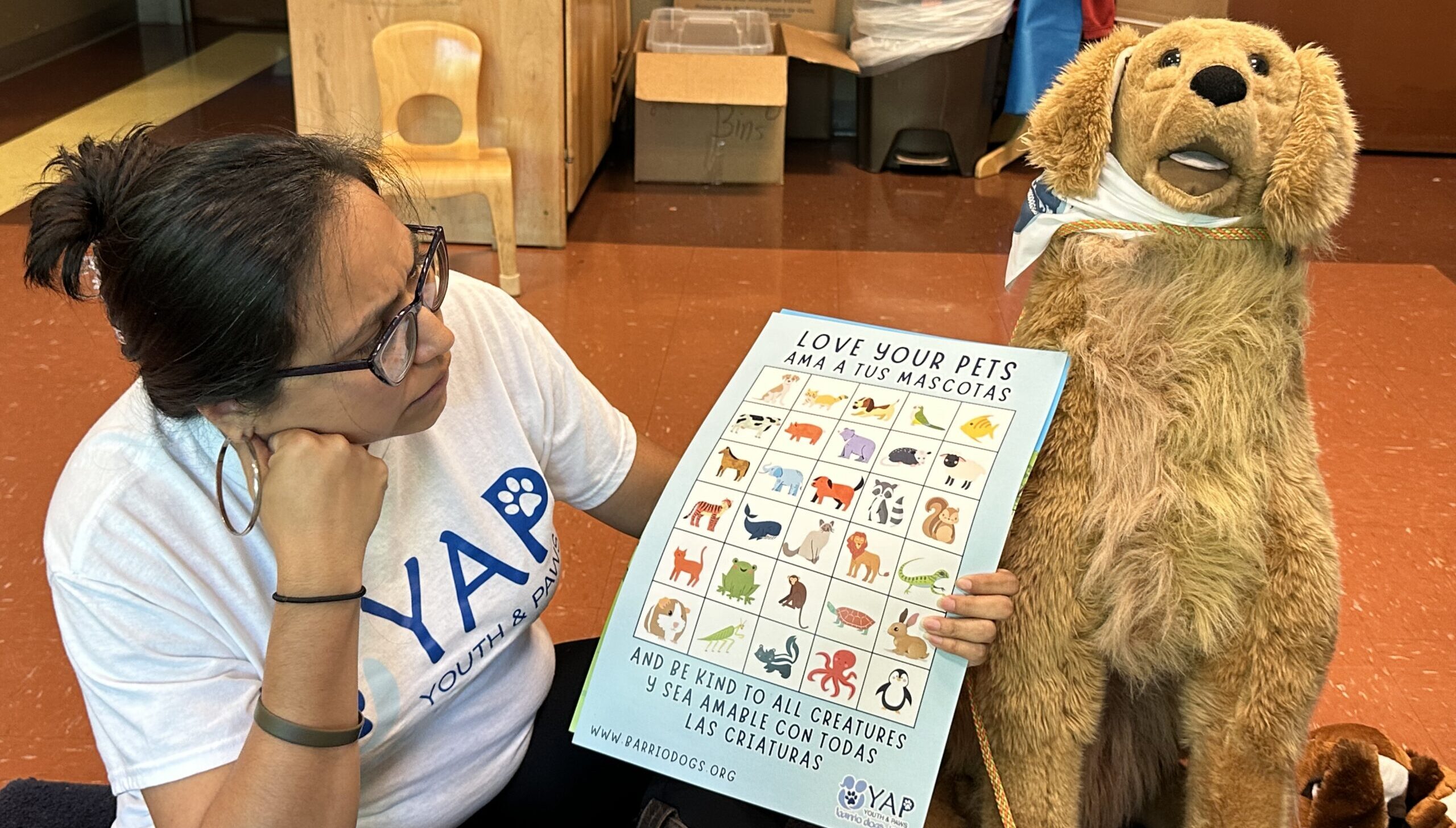 Through a collaboration with the nonprofit Barrio Dogs, the Houston Area Women’s Center educates children about how to care for pets.
Through a collaboration with the nonprofit Barrio Dogs, the Houston Area Women’s Center educates children about how to care for pets.
Most grantees work with multiple partners, reaching deep into their communities. These can range from musicians to hairdressers to family court judges to – incredibly – dog educators. This is integral as family violence impacts so many aspects of survivors’ lives. Their safety, protection, recovery and healing depend on many others in the community and weave a network of others who reinforce sustained integration and healing.
Children as young as six in a shelter run by the Houston Area Women’s Center are learning how to care, and advocate, for dogs. Through a collaboration with the nonprofit Barrio Dogs, the program educates children about how to care for pets. They learn how to have empathy and love for a living creature, and they learn to take responsibility for the dogs.
Older children learn how to lobby policymakers on behalf of the dogs, advocating for leash laws and lighted dog parks. Many of the skills the children acquire from working with dogs enable them to navigate the trauma they have endured while learning to trust and empathize with others.
Across the country, the Maine Coalition to End Domestic Violence is developing a two-track concurrent parenting education program for the survivor and the parent using violence. This innovative approach takes into account what safe parenting looks like after one parent has used abuse and violence against the other parent. .
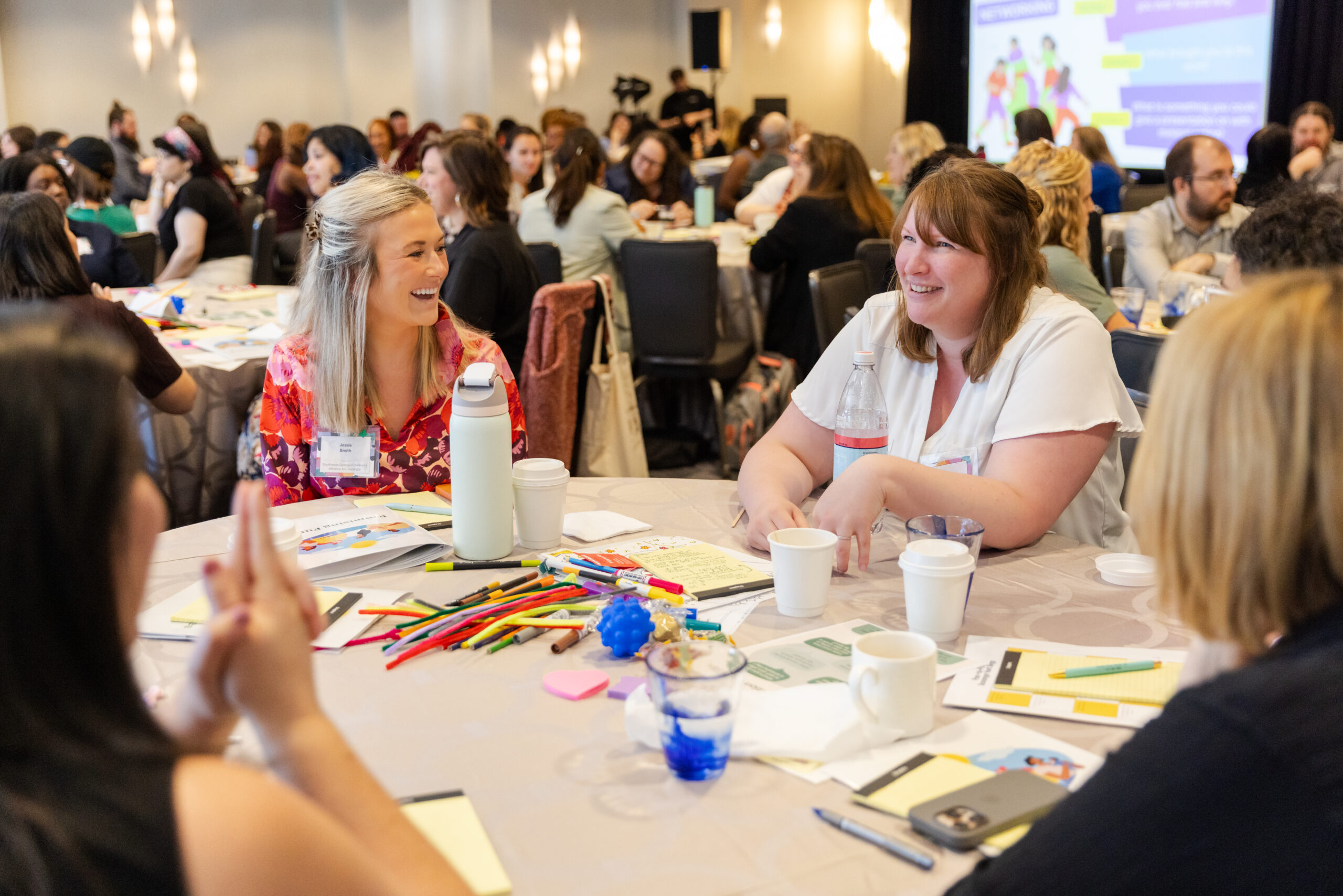
Erika Simonson, Family Services Director at the Maine Coalition to End Domestic Violence (right) says, “We hope to give these parents the tools they need to be successful.”
“Nothing like this exists,” explains Erika Simonson, “Both parents go through Safe and Accountable Education at the same time but separately.” She says that partner Through These Doors – a regional domestic violence resource center serving survivors in Maine’s most populous county — is developing the curriculum. They also work to hold perpetrators of abuse accountable for their actions by offering a state-certified domestic violence intervention program. Some of those parents will help in developing the new education program.
The Maine Coalition is also launching a program to provide local attorneys to survivor parents in the child welfare system pre-petition. The goal is to offer representation and advocacy in various areas that can support child safety, such as family court orders, safe housing, public benefits and educational opportunities. Attorneys are paid through the Promising Futures initiative at state defense counsel rates. The Maine Parental Rights Attorneys Association supports this effort as it will help stabilize families and keep children out of the child welfare system.
Approximately 40 miles north of Atlanta, GA, the Cherokee Family Violence Center has established the largest transitional housing of its kind for mothers and children who have experienced family violence. Some 72 furnished apartments, ranging from two to four bedrooms, are available in three buildings and residents may stay for up to three years.
Because most survivors have bad credit histories given the abuse they endured, leases are in their names and they are required to pay a portion of the rent based on income. Over the course of three years, residents attend workshops, meet with case managers, take trauma-informed parenting classes, hold jobs and/or work toward GEDs or career skills to enhance self-sufficiency.
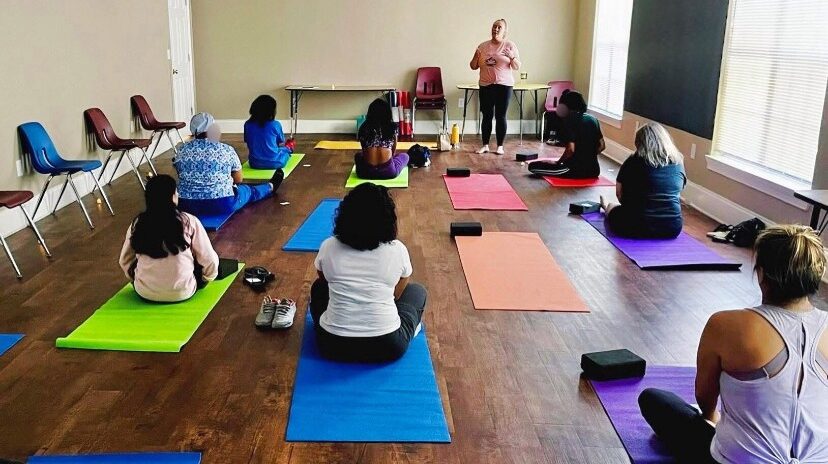 At the Cherokee Family Violence Center, mothers attend workshops, meet with case managers, take trauma-informed parenting classes, hold jobs and/or work toward GEDs or career skills to enhance self-sufficiency.
At the Cherokee Family Violence Center, mothers attend workshops, meet with case managers, take trauma-informed parenting classes, hold jobs and/or work toward GEDs or career skills to enhance self-sufficiency.
For three years, their children find stability in one school system and join kids’ groups for activities such as yoga classes and trips to the park. There are Mom & Me classes for smaller children, and there is a Back-to-School event with volunteer hair braiders and barbers. And, to ensure that even teenagers have no problem getting to and from school activities, the Center purchased its own 15-seat passenger van.
One mom recently said, “I found some peace here.”
A Movement Takes Shape
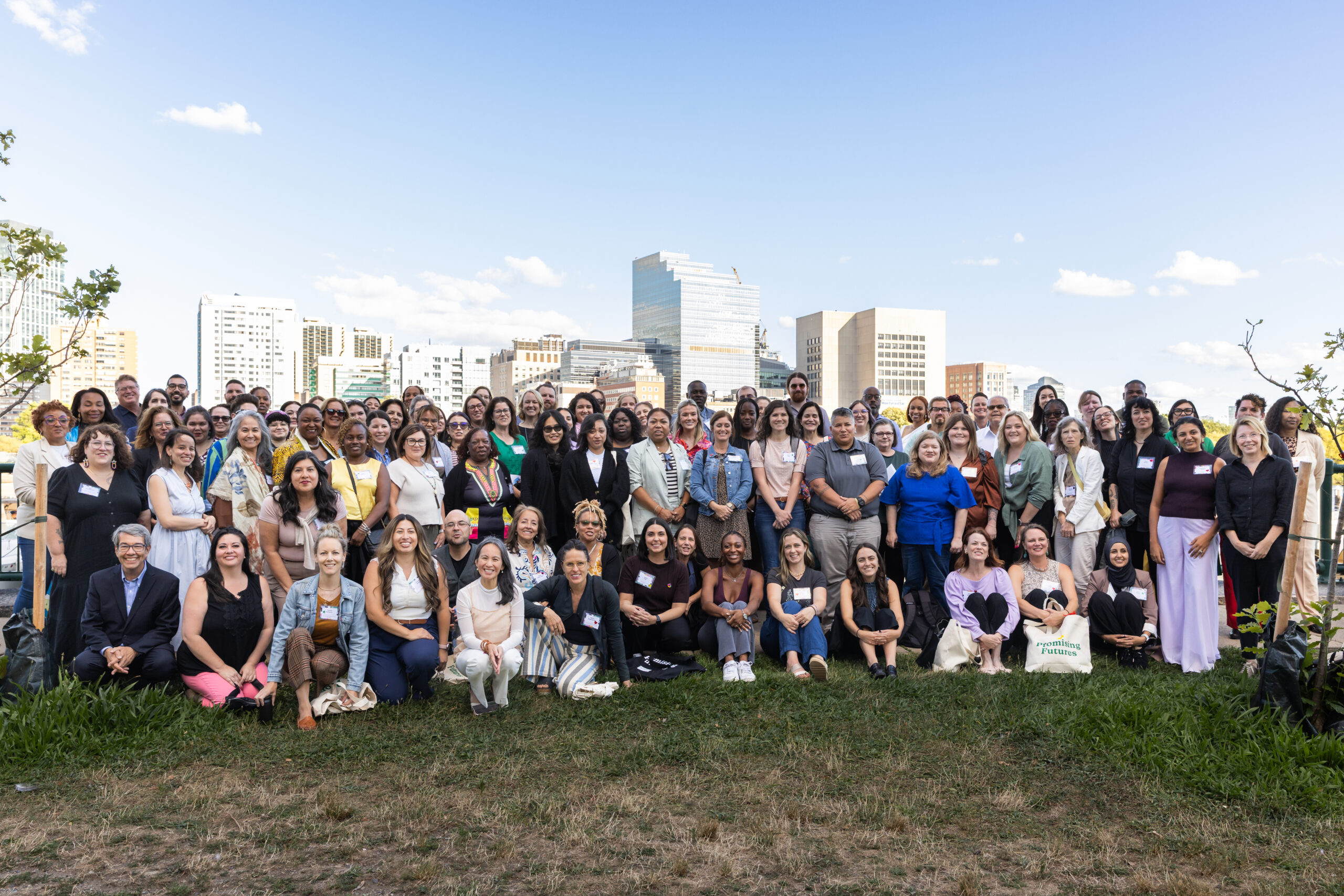 55 grantees from 28 states and the District of Columbia convened in Boston to learn from one another about the innovative ways they are addressing family violence.
55 grantees from 28 states and the District of Columbia convened in Boston to learn from one another about the innovative ways they are addressing family violence.
Getting grantees together to share experiences, lessons learned, and ongoing challenges was a critical step in advancing a movement. Despite a packed agenda at the Peer-to-Peer conference in August convened by Promising Futures, there was plenty of time built in for 120 grantee participants to share experiences and ask questions of each other.
A theme that kept coming up was that of “healing.” Participants talked about how they worked to heal traumatized children, to heal women who were always slightly behind where they wanted to be, to heal the fractures experienced by generations of families. And they talked about the surprise of seeing their work heal themselves and their colleagues over time.
Perhaps one of the main takeaways was the fact that while they were all addressing the same issues, they were going about it in so many different ways. There was clearly pride in the innovations they shared and the ways in which each community has embraced programs developed specifically for them.
A session during the meeting featured two young people who had both experienced family violence and were channeling their pain and hope into the spoken word. Cody, a high school student, said, “Everyone’s needs are different. Healing is not a straight line.”
When you start with “What if?” and end with positive and transformative change, it is clear there are many ways to get there. Very few of them are linear. There are detours and maps and stops along the way. However, it became apparent at the Promising Futures meeting in Boston, that no one travels alone on this winding route when it is created with intention and paved with healing.


